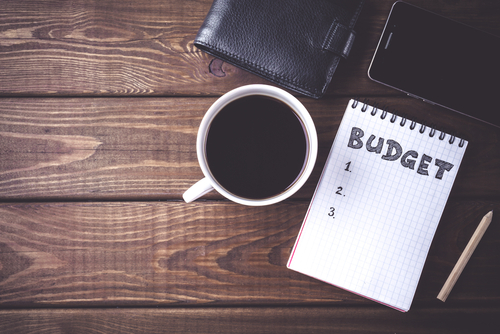Setting a budget for the first time might seem overwhelming. Luckily, it’s easier than you think. With the right guidelines, you can fix a solid budget and start saving money like a pro! But how to budget your money correctly? What steps should one follow while getting started? Let’s clear the air.
Understand Your Requirements
According to multiple studies, only a handful of families follow a strict budget. That means, when you decide to follow a budget, you are actively joining a group of minorities and for your decision to work out, you need to understand why you need the budget in the first place.
Although budgeting is certainly an excellent decision, it is important to pre-define goals before getting started with the process. Why? Because your reasons might affect the choices you’ve made as a part of the plan. Usually, most people decide to follow a budget because of one or more of the following reasons:
- To find a way to saving more funds.
- Cutting down on overspending.
- Settling finances with your partner.
- Ensuring that your spending habits reflect your end goals.
- Decimating debt.
While it may not seem as important in the beginning, having a set of goals and sticking to them will keep you motivated during the budget planning. So, before anything else, make sure your goals are well-defined.
Understand Your Spending Habits
Even before you’re done creating a realistic budget, it is important to understand your current spending habits. Remember, unless your budget is aligned with your spending habits, it is a mere wish-list.
You can create a budget by entering your list of expenses in a notebook or a spreadsheet. Now, every time you buy something, jot it down in the spreadsheet. This is the best and probably the most viable approach to understand your spending habits. Once you have a list, you can assess it at the end of the month. By doing this, you will have a clear picture of where you financially stand.
P.S: If you are not as comfortable jotting down your budget goals, consider using an application. Nowadays, there are plenty of apps that are tailored to assess your spending habits. Use them to keep your expenses in check.
Avoid Using Plastic Money
Debt is one of the biggest causes of your budget goals being derailed. So, if you are looking to budget your money the right way, it is imperative to avoid getting into debt. While there are many ways to do this, one of the simplest methods is by reducing your credit card use.
While credit cards give you an initial feeling of not using the money, the money is actually’ deducted and if you fail to pay it off within the due date, a hefty APR will be levied on the outstanding balance. Eventually, the interest will keep adding up, leaving you in a pool of never-ending debt. So, do not allow your face such issues by simply cutting down on your credit card use.
Understand How Much You Are Willing to Save
The key to any budget is saving money. So, before anything else, it is also important to understand how much you are looking to save. Once you have an idea, try to figure out how exactly you can save that amount. One of the easiest ways to go ahead here is by cutting down on unnecessary expenses. So, if you don’t use a certain membership, cancel it. If you’ve not used your credit card in months, close it down. If you think night-outs at swanky restaurants are adding up the bills, prepare a fancy dinner at home. Remember, even the smallest lifestyle changes can help you save a hefty amount if done the right way.
Delay Purchases
Very often, we end up going overboard on our budget because of the frequent rounds at the shopping mall. You can, however, eliminate this by delaying your purchases. If you find something nice, delay buying it. In most cases, you will forget about the item which in turn will help save up costs. Follow this more frequently for more savings.
Bottom Line
Now that you have a clear insight into the nitty-gritty of making and following a budget, follow these tips and you’ll soon be on track. Remember, the key here is to be consistent. So, if you are consistent enough, you will certainly end up saving all the money you always wanted.


